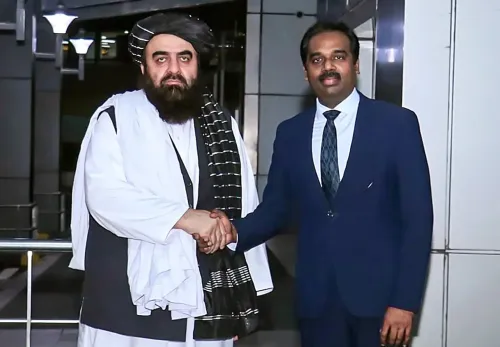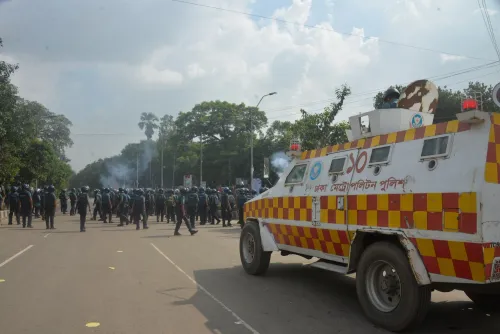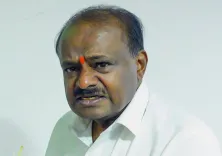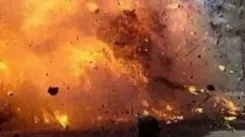Will Former Nepal PM Oli Successfully Demand the Reinstatement of the Lower House?

Synopsis
Key Takeaways
- K P Sharma Oli is demanding the restoration of the dissolved House of Representatives.
- The current government is criticized for its unconstitutional actions.
- The Gen-Z protests resulted in significant political upheaval in Nepal.
- Upcoming elections are scheduled for March 5, 2024.
- Travel restrictions on Oli raise concerns about political freedom.
Kathmandu, Oct 9 (NationPress) The former Prime Minister of Nepal, K P Sharma Oli, who was removed from power last month due to the Gen-Z protests, has announced that his political party is now pushing for the reinstatement of the dissolved House of Representatives.
During a recent party gathering in Bhaktapur, located in the Kathmandu Valley, Oli, who is also the leader of the Communist Party of Nepal (Unified Marxist–Leninist) (CPN-UML), asserted that the dissolution of the House was unconstitutional, and that the current interim Prime Minister, Sushila Karki, was also appointed in an unconstitutional manner.
After resigning in the aftermath of the violent protests on September 8 and 9 that resulted in 19 fatalities due to police action, Oli's exit allowed for Karki, a former Chief Justice, to be appointed as the head of the interim government on September 12.
Karki's appointment was executed not under Article 76 of the Constitution, which governs the election of a Prime Minister, but instead under Article 61, which delineates the President's responsibility to maintain national unity and to ensure the Constitution's enforcement. Shortly after taking office, she advised President Ram Chandra Paudel to dissolve the House, which was carried out at midnight that same day.
While Oli refrained from confirming his party's participation in the upcoming elections set for March 5 next year, he expressed skepticism regarding the government's commitment to holding elections on schedule. He remarked, 'Conducting elections on March 5 is the mandate given by the President, yet it does not seem to be their intention,' emphasizing the necessity of restoring the dissolved House of Representatives to restore the constitutional order in the country.
Oli warned, 'If we do not advocate for the House's restoration and instead accept unconstitutional measures, we risk ruining the nation.' He further claimed that although the current government emerged in response to the Gen-Z protests, it fails to represent the true interests of the Nepali populace. 'I cannot ascertain if it represents anyone from anywhere,' he commented.
He also expressed concerns over Karki's appointment, referencing a constitutional provision that restricts retired Supreme Court judges from taking up government positions. Article 132(2) explicitly states that anyone who has served as Chief Justice or Judge of the Supreme Court is ineligible for government roles unless otherwise stated in the Constitution.
Oli objected to the restrictions imposed on his travel outside the Kathmandu Valley and abroad, asserting that he would not flee out of fear of Prime Minister Karki. Following recommendations from the High-Level Judicial Inquiry Commission investigating the Gen-Z movement incidents, the government has restricted his travel. He also declared that his party would not acknowledge the inquiry commission's findings, accusing it of bias from the beginning.
He stated that the commission was composed of individuals who believed that 'KP Oli must be arrested and imprisoned.' He cautioned Home Minister Om Prakash Aryal against overstepping his bounds, asserting that threats of arrest would not intimidate him. 'Governance is a serious matter and should be treated as such,' he added.









